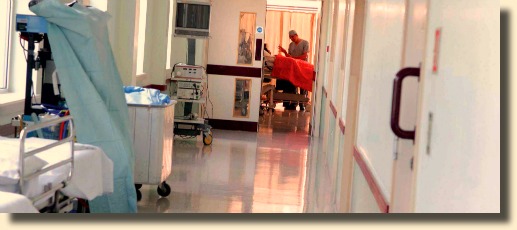
7 Tips For A Safe Hospital Stay
How to have a safe hospital stay
Many people are aware of the numerous medical malpractice cases that are handled on a regular basis. However, a great number of those cases concern hospital safety issues as opposed to medical error. Below are some of the risks involved in being admitted to a hospital and how to avoid them.
1. Hospital beds are designed to aid both patients and their caregivers. However, they also present a certain amount of potential risk for patients. In fact, the Food and Drug Administration (FDA) has estimated that over 300 injuries and 480 deaths have occurred that are related to hospital beds between 1985 and 2009 alone. Patients and their caregivers should ensure that they understand how to operate their bed. If there is any doubt, ask for help from the staff before attempting any adjustments.
2. Because hospitals treat people with infections, it is easy for them to be transmitted to both staff and patients. Despite precautions, the nature of infection itself is such that it is not possible to fully contain it. Each person is their own best advocate when it comes to protecting themselves. As much as possible, patients and their visitors should refrain from exposure to unknown areas of the hospital.
Watch for signs of illness so that they can be addressed swiftly as there may be a short time frame for any legal options you may need to pursue. According to the Bottar Leone Law Firm, "...a poorly trained or distracted health care provider may set the stage for an avoidable error that has permanent and life-altering consequences."
3. Hospital falls occur for a variety of reasons such as the patient's condition or lack of adequate supervisory staff. The best way to avoid falls is to take every precaution when walking around. For instance, patients should ensure that they are accompanied as necessary and wear grip type slippers when walking about.
4. The sedentary nature of a hospital stay makes it much easier to get dangerous blood clots. One of the best ways to avoid clots is to have physical therapy as often as possible. To the extent allowed, patients should also be encouraged to move about as much as they can.
5. Theft is a possibility at any time and at any place. While hospitalized, patients should keep any valuables they need to have with them out of view and locked away in the convenient locker that is available in many rooms.
6. During hospital expansions, construction related activities can cause a nuisance as well as creating danger zones. To protect themselves, staff and patients should follow the most stringent guidelines possible to eliminate the chance of mishaps, infection, noise, and overall safety.
7. Noise pollution from staff and patients not only occurs due to construction activities, but from staff and other patients as well. When patients are having difficulty sleeping due to noise, they should ask for earplugs and communicate to a supervisor so that better precautions can be taken. If possible, patients can also ask for a private room in a less active area of the hospital.
Of course no one enjoys going to the hospital. The longer the stay, the more likely you are to be exposed to a safety risk. For patients who encounter these problems, the onset of mental health issues and depression can also be common. Be sure to enlist the aid of friends and family members to be advocates in navigating the system and when necessary, contact an attorney quickly for advice on medical malpractice.
Writer LaGeris Underwood Bell offers this article to bring attention to the perils of hospital stays.
Check out these great sections
